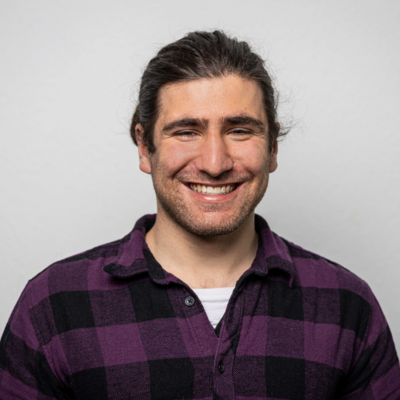
School of Electrical Engineering and Computer Science
Here you will acquire the theoretical knowledge and practical skills needed to implement software-intensive systems in IT projects.
| Degree | Bachelor of Science, optional vocational training |
|---|---|
| Start of study | Winter semester |
| Application period Winter semester | 01 June until 15 July |
| Standard period of study | 7 semesters |
| Credits | 210 |
| Accredited | Yes |
| Admission restricted | Yes |
| Admission requirements |
|
| Language of instruction | German |
| Faculty/institution | School of Electrical Engineering and Computer Science |
| Stay abroad | Optional |
| Study format | Stay abroad optional, Dual study optional |
The degree programme in Computer Science: Software and Systems Engineering (ISS) provides students with the competences required to design, develop, test, operate and maintain complex technical software-intensive systems with corresponding quality assurance. In addition to computer science, the subject-specific educational goal of the degree programme is ensured by means of two equally strong specialisations: Hardware (digital technology, microprocessor technology, computer architecture) and software (operating systems, software technology, databases, computer networks).
The degree programme in Computer Science: Software and Systems Engineering can be studied in a standrad, a dual study, and an international version. While in the standard variant the course content is taught in an application-oriented manner at the university in seminar format, exercises and laboratories, the dual study variant is supplemented by practical training within a cooperating partner company or public body, and the international variant by a period of one-semester studying abroad.
Graduates of the Computer Science: Software and Systems Engineering programme (B. Sc.) are in high demand in their diverse work environment. Due to their broad education, they can take on a variety of tasks, e.g.:
Typical career fields open to graduates include the conception, design, development, testing, management, sales, and service of software-intensive systems. Training for such a large number of vocational activities is necessary because the labour market demands increasing flexibility on the part of even specialist personnel. In addition, technical progress necessitates a broad qualification within the framework of a vocationally qualifying university education.
The degree programme Computer Science: Software and Systems Engineering in its classic variant is an undergraduate degree programme aimed at students who have a technically-oriented interest in computer science as well as its application in a systems context and are seeking a broad spectrum of career options with their choice of degree programme.
The programme is composed of seminar-style teaching units in small groups, accompanying exercises, laboratories with a high practical component, application-oriented projects, and an in-company practice phase. It offers a first vocationally qualifying university education in an interdisciplinary context and students graduate with the degree Bachelor of Science (B. Sc.). The studies are characterised by continuous dialogue between students, lecturers, and potential employers, providing the basis for direct career entry as well as for a subsequent Master's degree programme.
„A degree programme like "Computer Science: Software and Systems Engineering’ (until the end of September 2022 still called "Computer Engineering") offers precisely the exciting challenge of complex content interwoven with realistic practical applications that I was looking for. Having mastered this makes me proud and provides me with an excellent foundation for my current job.“
Stanislav Voytas Alumni Computer Engineering, 2022
Here you can find an overview of our partner companies and public bodies and the places available for the dual study programme:
Students of the international variant spend a semester at a university abroad. Not least by participating in additional events and extra-curricular activities during their stay abroad, students strengthen the competences they need to be able to interact appropriately and successfully with other cultures.
Students of the international variant make themselves fit for the internationalised labour market through improved language skills and intercultural competence. Based on the semester they spend studying abroad, they can use their professional competences in an international context, also in a foreign language.
In times of globalisation, converging markets and internationally operating companies with cross-border development teams, language and intercultural skills are essential for a successful career. The international version of the degree programme equips graduates with the necessary competences.
„Studying in the International Computer Engineering programme is ideal preparation for the global job market in computer science and electrical engineering.“
Tim Wieborg Alumni 2020
Hochschule Bremen in general, as well as the School of Electrical Engineering and Computer Science in particular, have partner universities and partner faculties all over the world. The agreements concluded between the School and the foreign partners regulate the exchange of students and supplement studies with an international component. Feel free to contact us if you have any questions about studying abroad during your studies.
Applications are initially submitted directly to one of the partner companies with which the Hochschule Bremen has concluded a cooperation agreement for the implementation of the degree programme. The application deadline therefore depends on the organisational requirements of the respective company. The in-company training usually begins on 1 August or 1 September.
Check the application deadlines and admission requirements for your desired degree programme.
Questions about the degree programme can be answered by the contact persons on the degree programme pages. If you have any further questions about your decision to study at HSB, our advisory and service institutions will be happy to help.
You need to apply with a cooperating company first. After signing a training contract, you apply to HSB.
Applying to HSB is not possible without a training contract.
[Translate to English:] d3@hs-bremen.de


